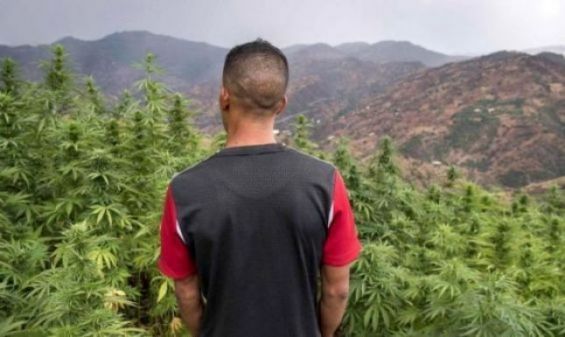Amid the promulgation of the law on legal uses for cannabis, a coordination that brings togethers cannabis farmers and descendants of cannabis growers in the provinces of Al Hoceima and Chefchaouen was mobilized. It has, in fact, met all the political parties represented in the House of Representatives to present its memorandum to them.
«We welcome Bill 13-21 but we have several comments on it and cannabis growers also have some reservations», Mohammed Kharchiche, a member of this coordination, told Yabiladi.
He referred to the delimitation of the regions concerned by legalization and the question of cooperatives. «The role of these has been reduced in the bill, acting only on collection and distribution of the harvest for companies which creates a sort of monopoly», he denounced.
In this sense, the coordination considers that «cooperatives must also have the right to proceed with the transformation of the product and its valuation, so that they can really participate in local development».
Mohammed Kharchiche recalls in this regard the use of cannabis in cosmetics or beauty products. «Projects which do not require a huge investment and which remain within the reach of local cooperatives», he argued.
Remove prison sentences
The coordination also pleads for the determination of a reference price. «For us, the local population is used to a high price for the illegal cannabis trade. With legalization, we must establish a reference price to ensure a minimal income for families», he said.
He also referred to the problem of land and custodial sentences. The group recalls that «most of this population has problems with the water and forests governmental body». «There are people who have cultivated their land for centuries, while the demarcation of the forest estates only dates back to the 1990s. Other farmers do not have documents proving that these lands belong to them», he explained.
«The bill also contains prison sentences but people are fed up with it. Section 9 provides for a prison sentence if the farmer does not report the loss or destruction of their harvest within 3 days. We are well aware that there are many constraints in these mountainous regions, which can hinder communication».
In this sense, the coordination hopes to «extend this period and eliminate the custodial sentences while maintaining the fine». It also pleads for «a 10-year contract-program, with general development, whether for infrastructure or industrial platforms in order to create an economic dynamic to fight against unemployment and encourage young people to join this project».
Amnesty and recreational use
Its members also denounce the location of the future national agency for the legalization of activities related to this culture. «In the bill, the agency is located in Rabat, which contradicts the spirit and laws on advanced regionalization and does not bring the administration closer to the citizen. How is it that the file concerns the Northern provinces, while the agency is located in Rabat?», he asked.
The coordination also defends the recreational use of cannabis. «This will be done in the image of countries that have legalized cannabis», explains this member who adds that it is a «black market that the State must exploit, otherwise it will fall into the hands of barons, gangs and cartels».
While pointing the finger at vexatious complaints, the coordination also calls for a general amnesty for all cultivators and those who were prosecuted. But while waiting for his grievances to be heard and for the law to be approved, Mohammed Kharchiche warns that the «local population needs urgent solutions because they are also faced with what happened in Fnideq with the closure of the borders». «The strengthening of controls and borders have made the cannabis trade drop drastically, which has impacted the income of families», he said.
For now, «all parliamentary groups in the House of Representatives support» the coordination memorandum, with the exception of the PJD. «The PJD has clearly expressed its rejection of this law, but they support us on two points: amnesty for farmers and development of the region», Mohammed Kharchiche said. «We have seen positive feedback from all the other parliamentary groups. Moreover, for recreational use, the Istiqlal and the Popular Movement support our proposal», he concluded.




 chargement...
chargement...











